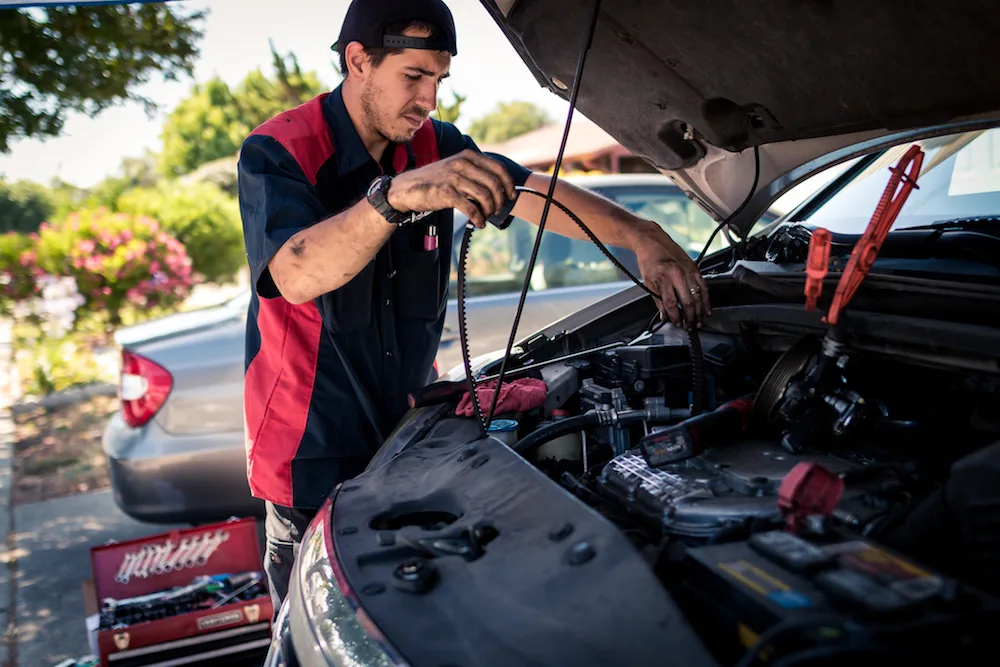Automotive mechanics make good money, working on vehicles and solving tough problems. After the initial learning curve, most mechanics feel confident in their work – and benefit from an enriching, stimulating environment.
But what does the day in the life of a mechanic actually look like?
Applying for a Job as a Mechanic
Before they’re hired, mechanics must apply for a job like anyone else. Becoming a mechanic doesn’t require any formal education, but candidates who have a high school diploma or GED will have an advantage over candidates who have no educational background. Similarly, there are plenty of entry-level jobs for mechanics available, the candidates who have at least some experience or certification as automotive mechanics will have advantages over their counterparts.
It’s worth noting that currently, there’s a major labor shortage affecting mechanic jobs. Transportation companies, car dealerships, and local repair shops are having trouble filling their open mechanic and technician jobs, so if you have any interest in becoming a mechanic, now could be the best time to start your journey.
The Daily Routine
What does the daily routine look like for a mechanic?
- Clock in. Most mechanics are hourly workers, or at the very least, they are responsible for tracking the number of hours they work. The first thing you’ll do as a mechanic every day is clock in to start your shift.
- Review information. Depending on where you work, you may be responsible for attending a daily huddle meeting, reading emails, talking to your boss, or otherwise catching up on new information. There may be new protocols to follow, or you may just be learning about the team’s goals for the day. Either way, it’s important to stay updated.
- Schedule. Some mechanics are responsible for scheduling their work and handling customer appointments. Other mechanics are handed a schedule by someone else who’s responsible for these tasks. Either way, it will take some time to figure out what you’re doing for the day.
- Communicate with customers. Most mechanics need to communicate with customers on at least some level, listening to them as they describe any problems they’re having with the vehicle and helping them understand what repairs need done and why. You’ll need adequate customer service skills and the ability to communicate to succeed as a mechanic.
- Troubleshoot and test. One of the core responsibilities of a mechanic is troubleshooting and testing various vehicle components. If the vehicle isn’t performing optimally, it’s your job to figure out why. That may include removing and testing various parts, using diagnostic equipment, or consulting with other mechanics.
- Write estimates. When you discover something wrong, you’ll usually be responsible for writing up an estimate. Your customers or your bosses need to know exactly how much time and effort this is going to take to fix so they can make an informed decision.
- Complete common maintenance items. Routine car maintenance isn’t the most glamorous job, but it’s an incredibly important one. Simple tasks, like changing the oil and replacing old filters can prevent the majority of more complex, more expensive problems and keep the vehicle running as efficiently as possible. As you get more experience with these maintenance tasks, you’ll be able to complete them faster and more efficiently.
- Collaborate with other mechanics. Much of your work as a mechanic will be solo, but there will also be opportunities to collaborate with other mechanics. You may be forced to work together on a large repair, or you may need to consult with other people to figure out a particularly tough problem. In any case, it’s important that you know how to work with others.
- Order parts and track inventory. It may be the mechanic’s responsibility to track inventory within the store and order parts both proactively and reactively when necessary.
- Perform repairs. Common repairs, like replacing spark plugs and fixing flat tires, are relatively easy to learn – and you’ll see these jobs many times per day. You’ll also be responsible for more complex repairs, up to and including rebuilding engines in some cases.
- Wrap up and clock out. At the end of the day, you may have some paperwork to fill out – but after that, you can clock out and leave.
There are a few caveats you need to understand about this projected daily routine. For starters, different organizations manage this role in different ways; in some cases, mechanics are almost exclusively responsible for conducting routine maintenance all day. In others, you may have additional, non-mechanical responsibilities in the organization.
It’s also important to understand that different mechanics handle their roles in different ways. As an automotive mechanic, you’ll have at least some flexibility in how you choose to exercise your skills and handle your responsibilities.
If you’re ready to give this engaging field a try, find an entry-level position and apply for it!
